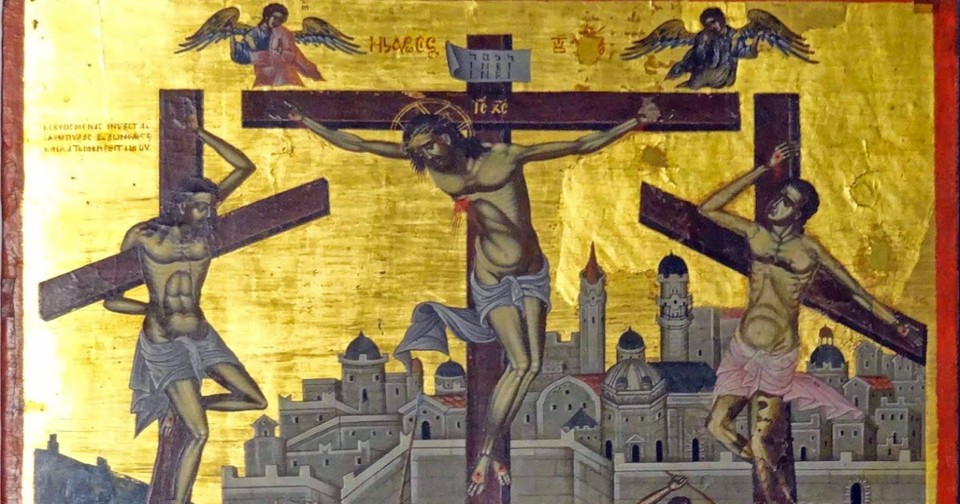What Is a Martyr? Definition, Examples, and Importance Today

Question: What is a martyr? Who are some martyrs in history?
Quick Answer: A martyr is a person who is killed because of their religious or other beliefs. The first Christian martyrs were St. Stephen and the Apostles James. The most important martyrs of the apostles were Peter and Paul, who were both put to death in Rome.
Table of Contents
- Definition
- First Martyr in the Bible
- Famous Martyrs in History
- The Legacy of Martyrs
- Importance in Christianity
- Bible Verses about Martyrdom
- Conclusion
The concept of martyrdom has played a significant role in human history and culture. It brings to mind the image of brave individuals who have given their lives for a cause, belief, or principle. But what exactly makes someone a martyr, and what motivates individuals to make such profound sacrifices? In this exploration, we will define the term martyr and look closely at some of the most notable historical figures who have become martyrs.
Martyr Definition
The word "martyr" comes from the Greek term "martys," which means "witness." At first, it referred to people who testified to their faith, often in the face of hardship. Over time, the definition of martyrdom extended to include individuals who willingly suffer or die for a cause they strongly believe in.
At the center of the definition, a martyr is an individual who willingly gives up their own life, well-being, or freedom, often enduring extreme pain and hardships, to support a principle, belief, or ideology. This sacrifice is typically made to promote or protect a cause that holds great importance to the martyr, either personally or socially.
According to Merriam-Webster, the definitions of "martyr" include:
1: a person who voluntarily suffers death as the penalty for witnessing to and refusing to renounce a religion
2: a person who sacrifices something of great value and especially life itself, for the sake of principle
The First Martyr in the Bible: Stephen
Now when they heard these things they were enraged, and they ground their teeth at him. But he, full of the Holy Spirit, gazed into heaven and saw the glory of God, and Jesus standing at the right hand of God. And he said, "Behold, I see the heavens opened, and the Son of Man standing at the right hand of God." But they cried out with a loud voice and stopped their ears and rushed together at him. Then they cast him out of the city and stoned him. And the witnesses laid down their garments at the feet of a young man named Saul. And as they were stoning Stephen, he called out, "Lord Jesus, receive my spirit." And falling to his knees he cried out with a loud voice, "Lord, do not hold this sin against them." And when he had said this, he fell asleep. (Acts 7:54-60)
Famous Martyrs in History
Socrates (469-399 BCE): One of the earliest recorded martyrs in Western history is the ancient Greek philosopher Socrates. He was sentenced to death by drinking poison hemlock for his philosophical teachings, which challenged conventional beliefs and questioned the authority of the Athenian state. Socrates chose to uphold his principles and face death rather than renounce his intellectual pursuit of truth.
St. Perpetua and St. Felicity (died c. 203): These early Christian martyrs from Carthage, in what is now Tunisia, are among the most famous female martyrs in Christian history. Perpetua, a noblewoman, and Felicity, a slave, were arrested for their Christian faith during the reign of Emperor Septimius Severus. Despite facing the threat of wild animals and execution, they refused to renounce their faith and were ultimately killed in the arena.
Joan of Arc (1412-1431): This young French heroine is celebrated for her pivotal role in the Hundred Years' War. Joan of Arc claimed to receive divine guidance, which inspired her to lead the French army to several victories against the English. Captured by her enemies, she was tried for heresy and eventually burned at the stake. Joan's unwavering faith and courage in the face of persecution made her a symbol of resistance and martyrdom.
Thomas More (1478-1535): The English statesman and author is best known for his refusal to acknowledge King Henry VIII's divorce from Catherine of Aragon and his refusal to accept Henry as the head of the Church of England. More's principled stand against the king's actions led to his execution. His steadfast commitment to his religious beliefs and moral values made him a martyr for conscience and religious freedom.
St. Elizabeth the New Martyr (1864-1918): A Russian Orthodox Grand Duchess, Elizabeth, was known for her charitable work and devotion to the Orthodox faith. After the Russian Revolution, she was imprisoned by the Bolsheviks and ultimately martyred. Her life and death have made her an enduring symbol of Orthodox Christian piety and martyrdom.
St. Maximilian Kolbe (1894-1941): A Franciscan friar and priest, Maximilian Kolbe was arrested by the Nazis during World War II for his outspoken opposition to the regime and his efforts to shelter Jews. In Auschwitz, he volunteered to take the place of a fellow prisoner who was condemned to death. Kolbe's act of self-sacrifice and bravery in the face of Nazi cruelty earned him sainthood in the Catholic Church.
The Legacy of Martyrs
The legacy of Christian martyrs is profound and enduring, shaping the identity of the faith and inspiring countless generations of believers. These brave individuals willingly faced persecution, suffering, and death due to their unwavering commitment to Christ and the Christian message, leaving an indelible mark on the Church's history.
The legacy of martyrs is a powerful reminder of the true cost of discipleship. Through their sacrifices, martyrs demonstrate that faith is not just an intellectual belief, but a profound and life-altering commitment to Christ. Their stories inspire Christians to stand firm in their faith, even in the face of adversity, and to embrace the teachings of Christ with courage and conviction.
Martyrs are commemorated as witnesses to the truth of Christianity. Their willingness to endure extreme hardships and death instead of renouncing their faith is convincing proof of the authenticity and transformative power of the Christian message. In a world filled with doubt and skepticism, the legacy of martyrs provides a firm foundation for believers to anchor their faith, knowing that it has withstood the test of time and tribulation. Ultimately, the legacy of martyrs continues to resonate in the hearts of Christians worldwide, reminding them of the call to live out their faith with unwavering dedication and to bear witness to the transformative power of Christ's love and grace.
Importance of Martyrdom in Christianity
The concept of martyrdom is important in Christianity as it represents the ultimate sacrifice for faith and devotion to God. Martyrdom is deeply rooted in Christian tradition and theology, serving several critical roles:
1. Imitating Christ: The centrality of Christianity, Jesus Christ, was indeed a martyr. His crucifixion and death on the cross are seen as the ultimate act of self-sacrifice to redeem humanity's sins. Martyrs, therefore, emulate the example set by Christ, willingly enduring suffering and death for their faith.
2. Witnessing to Faith: The term "martyr" originally meant "witness." Christian martyrs bear witness to their unwavering faith in Christ, even in the face of persecution and death. Their steadfastness becomes a powerful testament to the truth of Christianity, inspiring others to embrace the faith and strengthening the resolve of existing believers.
3. Spiritual Inspiration: Martyrs are often venerated as saints in the Christian tradition. Their lives and sacrifices inspire believers, who look to their stories as examples of unshakable faith and devotion. Saints and martyrs are considered intercessors who can pray on behalf of the living.
4. Persecution and Resilience: Martyrdom reminds Christians of the ongoing persecution and suffering that believers face in various parts of the world. It underscores the importance of standing firm in one's faith, even in the most adverse circumstances, and offers hope that God's grace can sustain individuals through trials.
Christianity views martyrdom as more than just a historical event; it is also a powerful demonstration of Christ's victory over death and the soul's immortality. It represents a willingness to make sacrifices and stand for one's beliefs, reminding Christians of their duty to be selfless, loving, and devoted to God.
Bible Verses about Martyrs
2 Timothy 3:12 - Indeed, all who desire to live a godly life in Christ Jesus will be persecuted,
1 Peter 4:14-16 - If you are insulted for the name of Christ, you are blessed, because the Spirit of glory and of God rests upon you. But let none of you suffer as a murderer or a thief or an evildoer or as a meddler. Yet if anyone suffers as a Christian, let him not be ashamed, but let him glorify God in that name.
Matthew 5:10-12 - “Blessed are those who are persecuted for righteousness' sake, for theirs is the kingdom of heaven. “Blessed are you when others revile you and persecute you and utter all kinds of evil against you falsely on my account. Rejoice and be glad, for your reward is great in heaven, for so they persecuted the prophets who were before you.
Matthew 10:28-33 - And do not fear those who kill the body but cannot kill the soul. Rather fear him who can destroy both soul and body in hell. Are not two sparrows sold for a penny? And not one of them will fall to the ground apart from your Father. But even the hairs of your head are all numbered. Fear not, therefore; you are of more value than many sparrows. So everyone who acknowledges me before men, I also will acknowledge before my Father who is in heaven, but whoever denies me before men, I also will deny before my Father who is in heaven.
John 15:18 - “If the world hates you, know that it has hated me before it hated you.
2 Corinthians 12:10 - For the sake of Christ, then, I am content with weaknesses, insults, hardships, persecutions, and calamities. For when I am weak, then I am strong.
Romans 8:31-35 - What then shall we say to these things? If God is for us, who can be against us? He who did not spare his own Son but gave him up for us all, how will he not also with him graciously give us all things? Who shall bring any charge against God's elect? It is God who justifies. Who is to condemn? Christ Jesus is the one who died—more than that, who was raised—who is at the right hand of God, who indeed is interceding for us. Who shall separate us from the love of Christ? Shall tribulation, or distress, or persecution, or famine, or nakedness, or danger, or sword?
Conclusion on Martyrs
Throughout human history, martyrs have held a special and often respected position. They symbolize the epitome of unyielding dedication to principles and beliefs, even in the face of suffering and death. Whether in the fields of philosophy, religion, civil rights, or social justice, martyrs have left an unforgettable impact on the course of history.
The tales of martyrs serve as a reminder of the remarkable strength of the human spirit and the ability of individuals to make significant sacrifices for the causes they believe in. These stories also urge us to ponder our values and principles and contemplate what we are willing to stand up for, even when faced with hardship.
Is martyrdom something to be sought, embraced only if it comes, or avoided if possible? See what other believers think and join the conversation on Crosswalk Forums!
Christianity.com's editorial staff is a team of writers with a background in the Christian faith and writing experience. We work to create relevant, inspiring content for our audience and update timely articles as necessary.
Originally published September 25, 2023.




